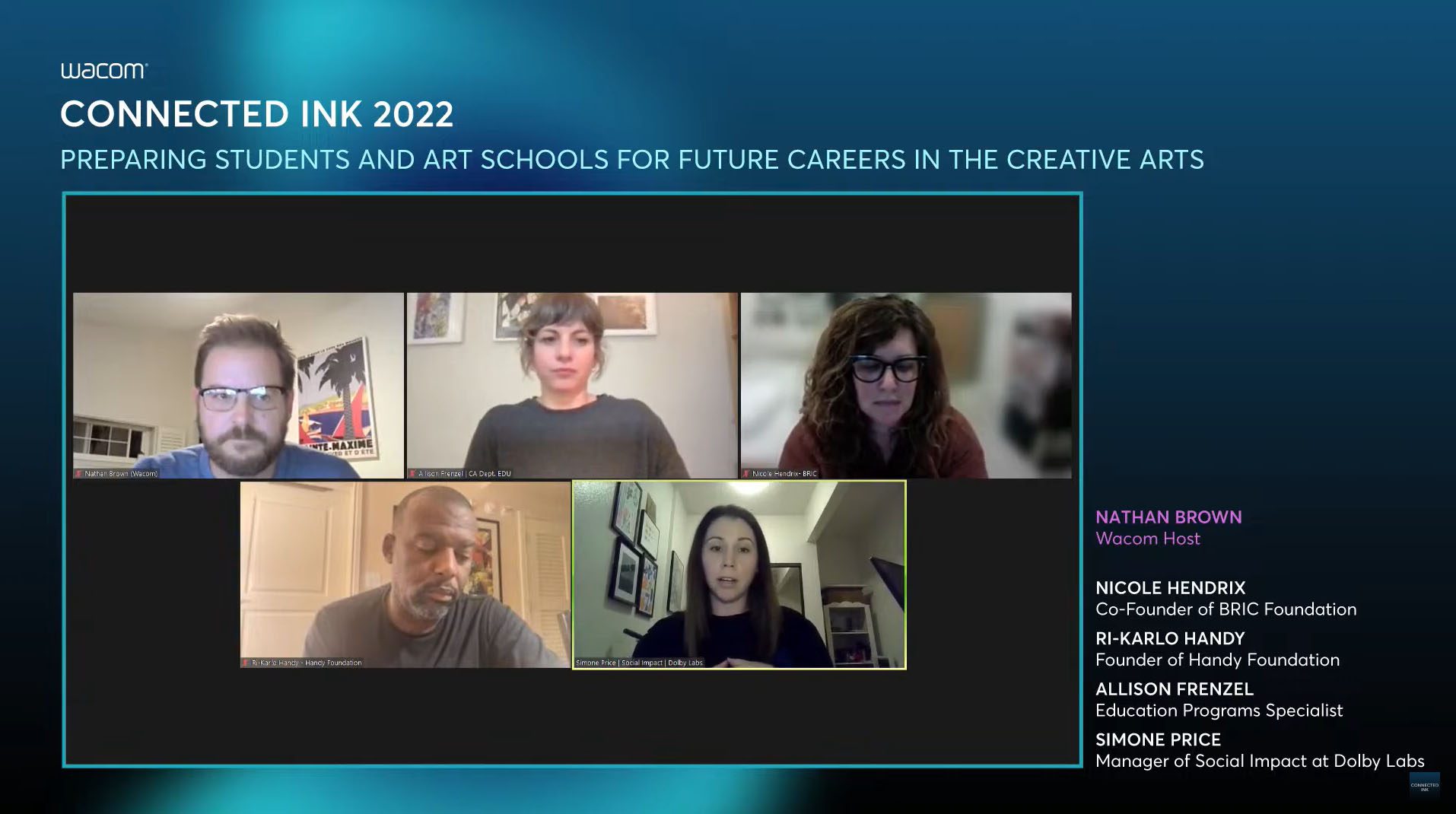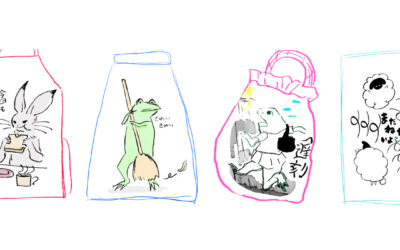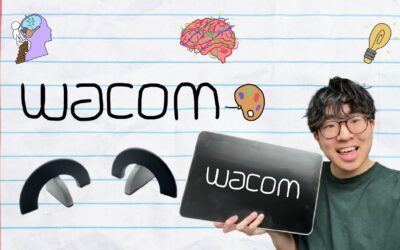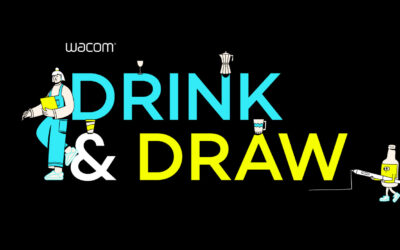Founded in 2018 by Alison Mann, Nicole Hendrix, and Jill Gilbert, the BRIC Foundation is a non-profit company dedicated to increasing representation in Entertainment, Gaming, Media and Tech.
During Connected Ink 2022, Wacom hosted a panel discussion featuring Nicole Hendrix, co-founder of BRIC, along with Allison Frenzel, an education programs specialist with the California Department of Education’s High School Innovations and Initiatives Office, Simone Price, manager of social impact at Dolby Labs, and Ri-Karlo Handy, a producer and director of music videos, commercials, films, and documentaries.
Check out the recording of the session below, as well as some takeaways from the session from Wacom’s Education Specialist.
How to prepare students for future careers in the creative arts
This session was a wide-ranging and in-depth discussion of career opportunities and the school-to-career pathways being built for the arts, media and entertainment industries.
From essential skills students need to the necessity of securing that first internship, apprenticeship and first job, to the need to provide training and professional development for media and arts teachers, this session set the stage for a new perspective on making critical connections between career and technical education and the film, media, and gaming industries. At the end of the presentation, each presenter provided a list of resources that will help students, educators, and parents alike.
Essential skills creative industries need — and schools need to be teaching:
- Broad, trans-disciplinary approach
- Design thinking
- Relationship-building
- Adaptive leadership
- Ability to learn new technology quickly
- Community building
- Data science skills
- Flexibility
- New media literacy
- Digital and data storytelling
- Being agile, curiosity about technologies in creative industries
- Perseverance
- Independent work ethic
- Ability to navigate the world and “figure it out”
- Some industry / workplace competencies
- Passion, curiosity, dedication
- Lifelong learner
Insider tips for getting into creative industries:
- The younger students are when they start exploring, the farther ahead they’ll be when they enter the industry
- It’s very important to communicate your ideas and demonstrate you can collaborate creatively
- Developing a network of mentors and maintaining those relationships, with strategic, authentic follow-up, is key
- Students and program leaders shouldn’t be afraid to reach out and ask to connect
- Technology moves fast — being a lifelong learner, particularly around software and tools, is essential
- Entertainment is a competency-based industry…a student’s ability to learn and build a skill will open opportunities
- Educators can reach out to companies — usually their social impact, community outreach, and HR teams — to learn about and/or establish programs and opportunities for their students
- Creative media and arts organizations need to provide more information about available career paths and specialties, and the powerful (but still unknown) opportunities that are available — teacher, student, and parent prompting can help this happen
- Parents need information and education about media and entertainment career opportunities, so they feel better about supporting their children’s career goals and aspirations
- Creative arts build critical transferable skills for students … arts education is career-readiness!
The truth about career and technical pathways in media and entertainment:
- Industry engagement is essential for an effective Career and Technical Education (CTE) program
- Programs like apprenticeship programs and arts-to-work programs are crucial
- School-to-career pipelines are beginning to evolve and develop, but are not yet widespread
- Career discovery is an essential part of CTE teaching and learning — this connects classroom learning with career opportunities and directions
- Exposure and access to industry professionals is critical for students, as well as for their teachers
- Teaching and training teachers can have amplified impact for students — this helps assure that students have industry-standard skills
- Stronger programs for more students also helps to diversify and strengthen the media and entertainment industry as well
- Certificates and/or badges that demonstrate competencies and/or skills are now often as valuable for companies as diplomas!
Want to learn more about the BRIC Foundation? You can view the entire panel discussion on the Connected Ink YouTube channel. You can also visit their website for more information.





